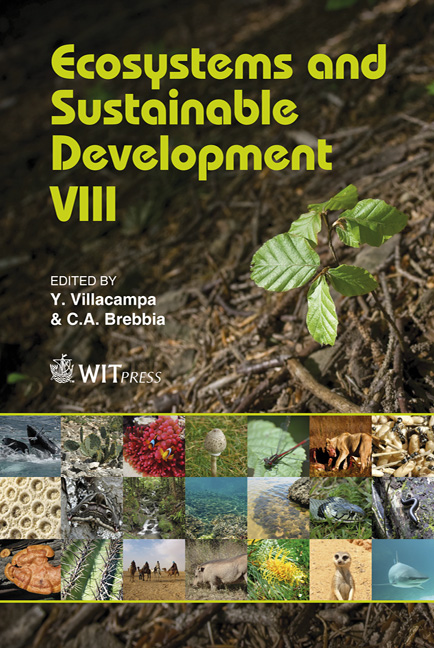Process Sustainability Prediction: A Computer Aided Design Tool For Sustainable Industrial Development
Price
Free (open access)
Transaction
Volume
144
Pages
12
Page Range
165 - 176
Published
2011
Size
2,479 kb
Paper DOI
10.2495/ECO110151
Copyright
WIT Press
Author(s)
M. Fermeglia, L. Toma & G. Longo
Abstract
Chemical process sustainability can be estimated using different sustainability indicators. The quantitative estimation of those indicators is necessary (i) for evaluating the environmental impact of a chemical process and (ii) for choosing the best design among different available alternatives. To accomplish these goals, the computerized calculation of sustainability indicators requires the use of at least three computer tools: (i) process simulation, (ii) molecular modelling and a (iii) sustainability indicators software code. In this paper, a complete software platform, Process Sustainability Prediction Framework, integrated with process simulation programs, which support the CAPE-OPEN interfaces, is presented, discussed and applied to an example of biofuel production. The process considered is implemented in a real plant in Cuba. Keywords: sustainability, process design, material impact, energy impact, Cape Open, process simulation, environmental impact, PSP, biofuels, bioethanol. 1 Introduction Sustainable development has been defined as the creation of goods and services using processes and systems that are non-polluting; conserving energy and natural resources; economically viable; safe and healthy for employees, communities and consumers; socially and creatively rewarding for all working people (Veleva and Ellenbecker [1]). In the sustainable development context, an important role is played by chemical engineering, basically for two main reasons: 1) the production of
Keywords
sustainability, process design, material impact, energy impact, Cape Open, process simulation, environmental impact, PSP, biofuels, bioethanol





